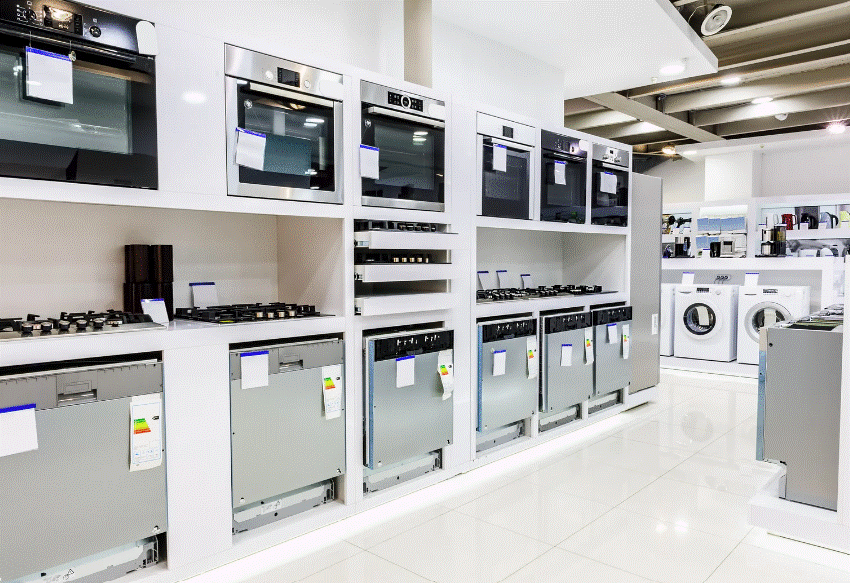The Rise of Fractional Homeownership: A Game-Changer or a Gimmick?
In today’s high-priced housing market, many would-be buyers are looking for creative ways to break in — or invest — without shouldering the full cost of a property.

When purchasing a home, whether for living or investing, understanding the life expectancy of major appliances is crucial. Not only does it help in assessing the true value of the property, but it also aids in making informed decisions during negotiations. Let's delve into the typical lifespan of common home appliances and explore strategies for negotiating if these appliances are nearing the end of their life.
Heating Systems - Life Expectancy: 15-25 Years
The lifespan of a heater, whether it's a furnace or boiler, can significantly impact your home’s comfort and energy bills. On average, a well-maintained heating system can last between 15 and 25 years. If the heating system in a property you are considering is over 20 years old, it may be time to think about replacement costs.
Negotiation Tip: When buying a home, if the heating system is on the older side, you might negotiate a lower purchase price to offset the potential cost of replacement. Sellers should be prepared for this discussion and might offer to replace or service the unit to close the deal.
Air Conditioning Units - Life Expectancy: 10-15 Years
Air conditioners have a shorter lifespan compared to heating systems, generally lasting between 10 to 15 years. Climate and maintenance play significant roles in determining their longevity. An older unit may not cool as efficiently and can be a major factor during hot summer months.
Negotiation Tip: Buyers should ask for recent maintenance records and consider negotiating for a new unit or a price reduction if the AC is nearing its life expectancy. Sellers can offer a home warranty that covers the AC unit to provide peace of mind to potential buyers.
Hot Water Heaters - Life Expectancy: 8-12 Years
Hot water heaters typically last between 8 to 12 years. Factors such as water quality and regular maintenance can influence their lifespan. A failing water heater can cause inconvenience and potential water damage, making it a critical component to inspect.
Negotiation Tip: Buyers should inquire about the age and maintenance history of the water heater. If it’s nearing the end of its lifespan, negotiate for a replacement or a discount. Sellers might consider proactively replacing an older unit to enhance the appeal of their property.
Washer and Dryer - Life Expectancy: 10-13 Years
Washers and dryers have a similar lifespan, typically lasting between 10 to 13 years. The usage frequency and maintenance routines greatly affect their longevity. These appliances are often taken for granted until they stop working, making their condition important in a home purchase.
Negotiation Tip: Prospective buyers should test these appliances during home inspections. If they are outdated, negotiate for new units or a price reduction. Sellers can highlight recent upgrades or offer a credit towards new appliances to attract buyers.
Ovens and Stoves - Life Expectancy: 13-15 Years
Ovens and stoves, whether gas or electric, usually last between 13 to 15 years. They are central to a functional kitchen, and their condition can influence a buyer’s perception of the home's overall value.
Negotiation Tip: Buyers should check the appliance's condition and performance. If it's older, negotiate for a replacement or a reduction in the purchase price. Sellers should ensure these appliances are in good working order or consider replacing older units before listing the property.
Refrigerators - Life Expectancy: 10-20 Years
Refrigerators have a varied lifespan, typically ranging from 10 to 20 years depending on the model and usage. Modern refrigerators often come with advanced features that can be costly to replace if they fail.
Negotiation Tip: Buyers should assess the age and condition of the refrigerator. If it's near the end of its lifespan, negotiating for a new fridge or a price adjustment is wise. Sellers can attract buyers by showcasing newer models or offering a warranty.
Dishwashers - Life Expectancy: 9-10 Years
Dishwashers generally last around 9 to 10 years. They are vital for modern kitchen convenience and can become a sticking point if they are not functioning correctly.
Negotiation Tip: During negotiations, buyers should confirm the dishwasher's age and functionality. If it’s nearing its end, a price reduction or replacement should be requested. Sellers can replace older dishwashers to boost the home’s appeal or offer a maintenance warranty.
Understanding the life expectancy of home appliances is essential for making informed decisions in real estate transactions. Buyers should use this knowledge to negotiate fair deals, considering potential future expenses for replacements. Sellers can enhance their property’s attractiveness by maintaining or replacing aging appliances, providing transparency, and possibly offering warranties. By doing so, both parties can achieve a fair and satisfactory agreement, ensuring a smooth transaction and a comfortable living environment.